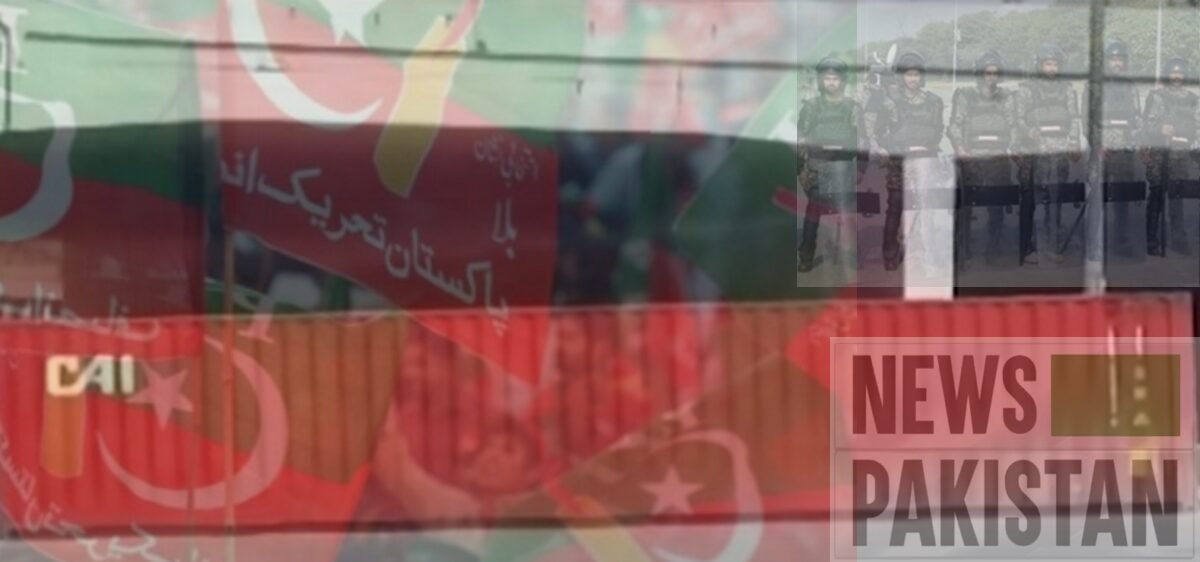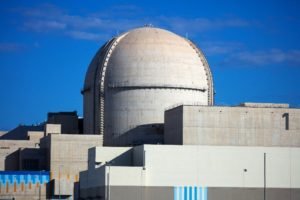TEHRAN: Iran has notified the International Atomic Energy Agency that it has launched a plan to increase its uranium enrichment capacity, nuclear chief Ali Akbar Salehi said today.
“If conditions allow, maybe tomorrow night at Natanz, we can announce the opening of the centre for production of new centrifuges” for uranium enrichment, said Salehi, a vice president and head of the Iranian Atomic Energy Organisation, according to conservative news agency Fars.
“What we are doing does not violate the (2015 nuclear) agreement,” he said, adding that a letter was submitted to the IAEA “yesterday regarding the start of certain activities”.
He specified that this was just the start of the production process and “does not mean that we will start assembling the centrifuges”.
Under the 2015 agreement, Iran can build parts for the centrifuges as long as it does not put them into operation within the first decade. Salehi also emphasized that these moves “do not mean the negotiations (with Europe) have failed.”
European governments have been trying to salvage the agreement ever since the United States announced its withdrawal last month and said it would reimpose sanctions on foreign companies working in the Islamic republic by November.
The other parties – Britain, France, Germany, China and Russia – have vowed to stay in the accord but many of their companies have already started to wind down Iranian operations.
Relevant pieces published earlier:
i) Iran is still implementing the 2015 accord over its nuclear program, just weeks after Washington ditched the accord, according to a report by the UN’s nuclear watchdog. The International Atomic Energy Agency (IAEA) report shows that Iran is abiding by the deal’s key restrictions on its nuclear facilities in return for relief from damaging economic sanctions. The latest assessment from the IAEA comes after US President Donald Trump withdrew the United States from the accord earlier this month, putting its future in jeopardy. The IAEA urged Iran to stick with the accord and even go beyond its legal obligations so as to boost international confidence in Tehran’s commitments.
A senior diplomat at IAEA headquarters said this was not prompted by any lack of co-operation or change of behavior on Iran’s part. The IAEA is “encouraging (Iran) to go above and beyond the requirements” of the deal in order to boost confidence, the diplomat said, adding that Tehran could, for example, invite inspectors to sites they had not demanded access to. Signatories Britain, France, Germany plus the European Union, Russia and China have been trying to salvage the deal after Trump’s decision but Iran has warned that if it suffers, as a result, the reintroduction of US economic sanctions, it could walk away from the accord. (24th of May, 2018)
ii) International Atomic Energy Agency (IAEA) says it has “no credible” evidence that Iran was working on developing a nuclear “explosive device” after 2009 and that the UN’s nuclear watchdog considered the issue “closed” after it was presented in a report in December 2015. The 2015 report “stated that the agency had no credible indications of activities in Iran relevant to the development of a nuclear explosive device after 2009. Based on the director-general’s report, the board of governors declared that its consideration of this issue was closed,” the IAEA said in a statement Tuesday.
“In line with standard IAEA practice, the IAEA evaluates all safeguards-relevant information available to it. However, it is not the practice of the IAEA to publicly discuss issues related to any such information,” it added. The IAEA statement comes after Israeli Prime Minister Benjamin Netanyahu claimed on April 30 that Israel had documents that showed new “proof” of an Iranian nuclear-weapons plan that could be activated at any time. Under an agreement in 2015 with world leaders, Iran curbed its enrichment of uranium for nuclear fuel to ease concerns it could be put to use in developing bomb material. In return, Tehran won relief from most international sanctions.
Since then, UN nuclear inspectors have repeatedly reported that Iran is heeding the terms of the deal. Iran has accused Netanyahu of being an “infamous liar” over the allegations, which come as the United States is considering whether to pull out of an atomic accord with Tehran, which has always rejected allegations that it sought a nuclear weapon, insisting its atomic program was solely for civilian purposes. “The documents (referred by Netanyahu) show that Iran had a secret nuclear-weapons program for years” while it was denying it was pursuing such weapons, U.S. Secretary of State Mike Pompeo said late on April 30 as he returned to Washington from a trip to Europe and the Middle East.











